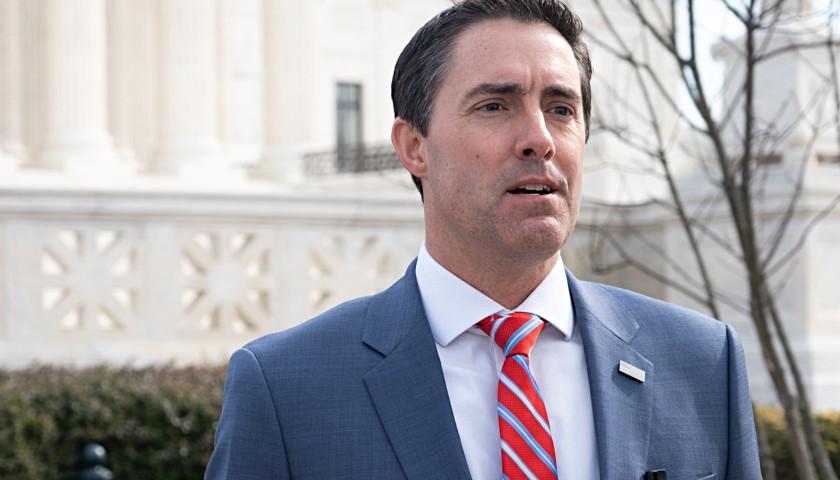Pennsylvania State Senators Cris Dush (R-Bellefonte) and Jarrett Coleman (R-Allentown) are preparing legislation to withdraw the commonwealth from the Electronic Registration Information Center (ERIC).
Over two dozen states and the District of Columbia participate in the election data-sharing system which they use to identify errors in their voter rolls. But seven states — Alabama, Florida, Iowa, Ohio, Louisiana, Missouri and West Virginia — recently cancelled their membership in the program.
In a memorandum to colleagues asking them to cosponsor their bill, Dush and Coleman criticized what they see as a shift from ERIC’s original purpose to facilitate election integrity toward “mass voter registration.” They also cited “data security concerns and partisan leanings” as well as restrictions on how states can use their voter data.
ERIC utilizes voter-registration information, motor-vehicle data, Social Security Administration death records and U.S. Postal Service data to spot inaccurate registration records and possible instances of unlawful voting. Dush and Coleman said the state should instead independently access Postal Service change-of-address data and Social Security information to correct its voter rolls.
“Pennsylvania is more than capable of cleaning its own voter rolls without sharing data with third party groups and this legislation will enable us to do just that,” the senators wrote.
In recent months, some of the Republican-led states that eventually resigned their ERIC memberships asked the organization’s board to end its requirement that participating states contact eligible voters who recently moved in and prompt them to register. The board refused.
At a budget hearing on March 27, Dush told Pennsylvania Secretary of State Al Schmidt, he would soon spearhead an ERIC withdrawal bill. The senator called the organization a “ghost entity,” mentioning Alabama Republican Secretary of State Wes Allen’s discovered “no ERIC presence of any kind” when he made an unadvertised visit to the company’s published address. Dush further insisted that nonmember states have had better success maintaining accurate voter rolls by using postal and Social Security information.
Schmidt countered that ERIC participants benefit when the system notifies them that a voter has moved and therefore may be registered in two locations.
“If that voter does not complete a change-of-address form, the state would not be aware of their having moved…,” he said. “There’s a universe of information ERIC provides that those nonmember states do not, at present, have access to.”
Matthew Germer, a fellow at the center-right R Street Institute told The Pennsylvania Daily Star he believes ERIC advances voter-roll integrity in member states. He observed that the system has enjoyed bipartisan support in the past and only recently has become controversial.
“As a conservative…, I want a system that is led by the states, that is a voluntary opt-in thing not run by Uncle Sam where the states participate, they share information, they’re able to see if there are any duplicates or holes in their voter data and address those,” he said. “And that’s largely what ERIC was designed to do. And so, from that spirit, I think it’s exactly what Republicans and conservatives like me should be supporting and actually for a long time did, really up until just these last few months as things kind of changed.”
Germer characterized ERIC’s requirement that states reach out to qualified voters who moved in from other states as “just good government [and] good customer service to taxpayers.” He added that while states can themselves use Postal Service and Social Security data to check registration records for errors, he considers ERIC membership an additional tool for states to improve their systems’ integrity. Another benefit to participation, he said, is that the program is inexpensive to join.
Responding to Dush’s suggestion that states that have stayed out of ERIC have maintained more accurate voter rolls, Germer noted that two of those states are New York and California — not renowned as models of election administration. He observed that those states are now considering joining the program.
– – –
Bradley Vasoli is managing editor of The Pennsylvania Daily Star. Follow Brad on Twitter at @BVasoli. Email tips to [email protected].
Photo “Jarrett Coleman” by Senator Jarrett Coleman. Photo “Cris Dush” by Cris Dush. Background Photo “Election Day” by Phil Roeder. CC BY 2.0.








